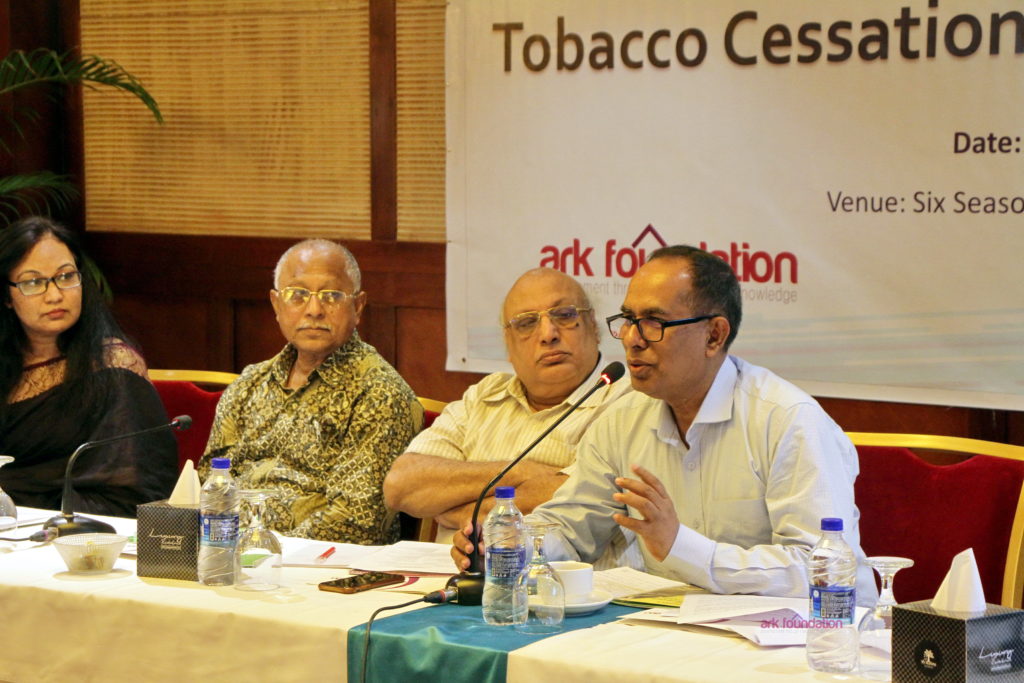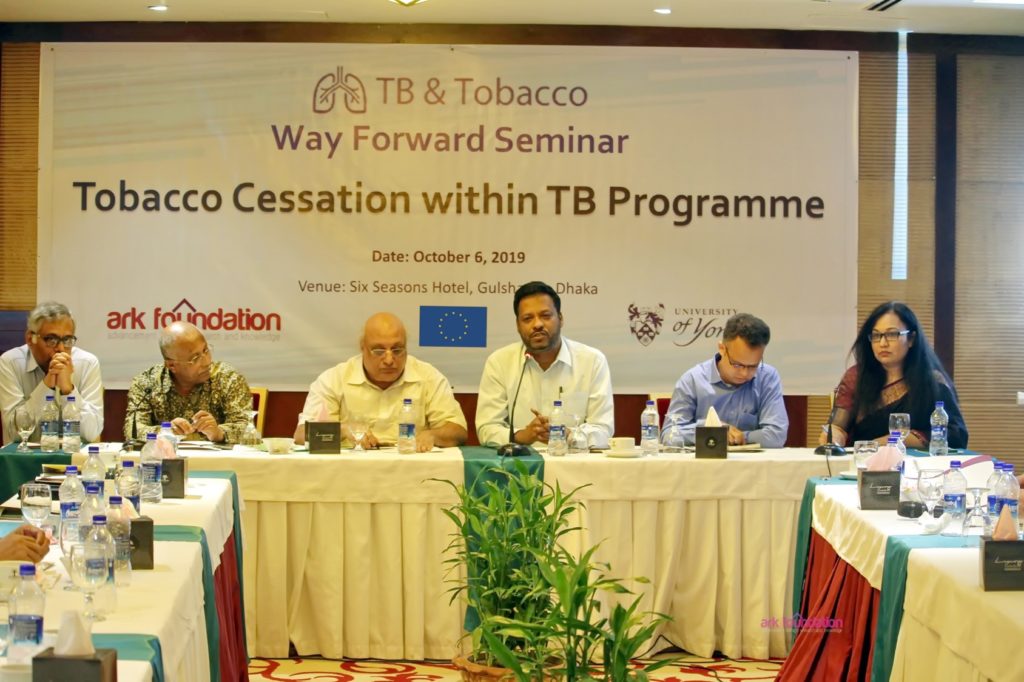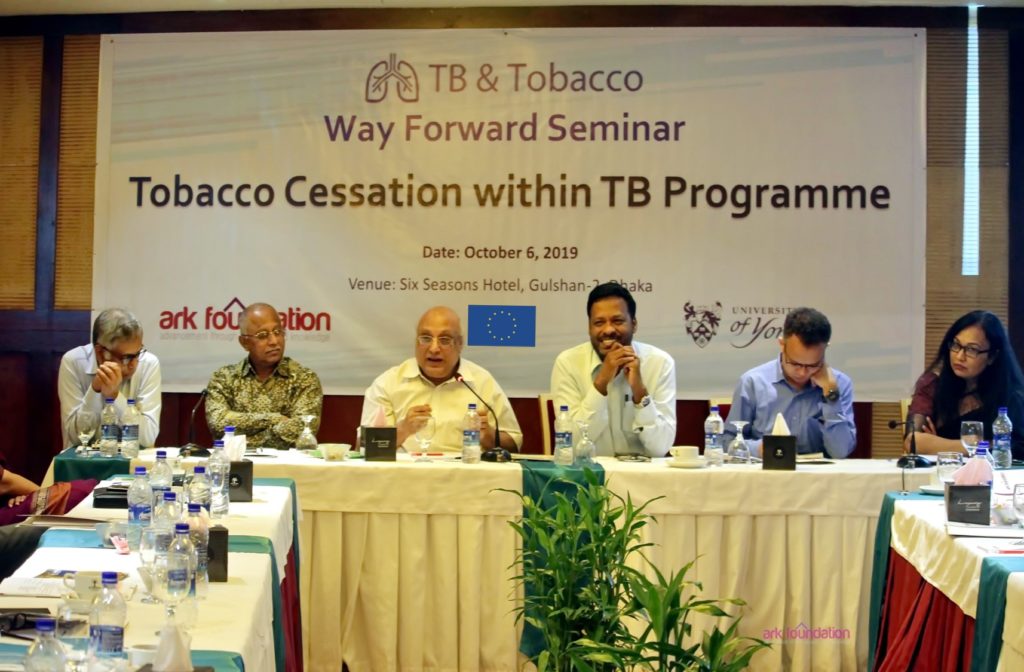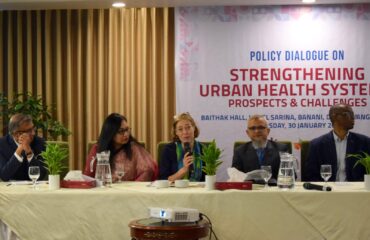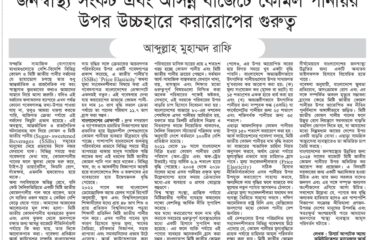In Bangladesh, every year, more than 350,000 people are affected by Tuberculosis (TB), and more than 70,000 people die due to the same. 20% of the deaths are attributed to tobacco. These toll of death can easily be avoided by collecting information and counselling on tobacco use among TB patients by the TB care providers. The information was revealed in a study conducted by ARK Foundation.
A dissemination seminar titled as ‘Tobacco cessation within TB Programme’ on the TB & Tobacco project was organized at a hotel in the capital city on 6th October 2019. Md. Saidur Rahman, Additional Secretary (World Health) of the Health Services Division of the Ministry of Health and Family Welfare was the chief guest of the event. Prof. Dr Shamiul Islam, Line Director, National Tuberculosis Control Program and Prof. Dr Shah Monir Hossain were the special guests of the seminar. The findings of the study were presented by the Executive Director of ARK Foundation, Dr Rumana Huque.
In this study funded by the European Union, it was further revealed, that 18% of the TB patients are smokers. At least one in every three male patients smoke. The risk of death among TB patients who are smokers increases two-fold. A brief counselling session provided by the healthcare provider can play a vital role in helping patients quit smoking. This kind of support for tobacco cessation can annually help 14,000 TB patients to quit tobacco.
Prof. Rumana Huque mentioned, taking the initiative to integrate the information collected on tobacco use, reporting and counselling, is of extreme importance.
Within this study, ARK foundation has trained healthcare 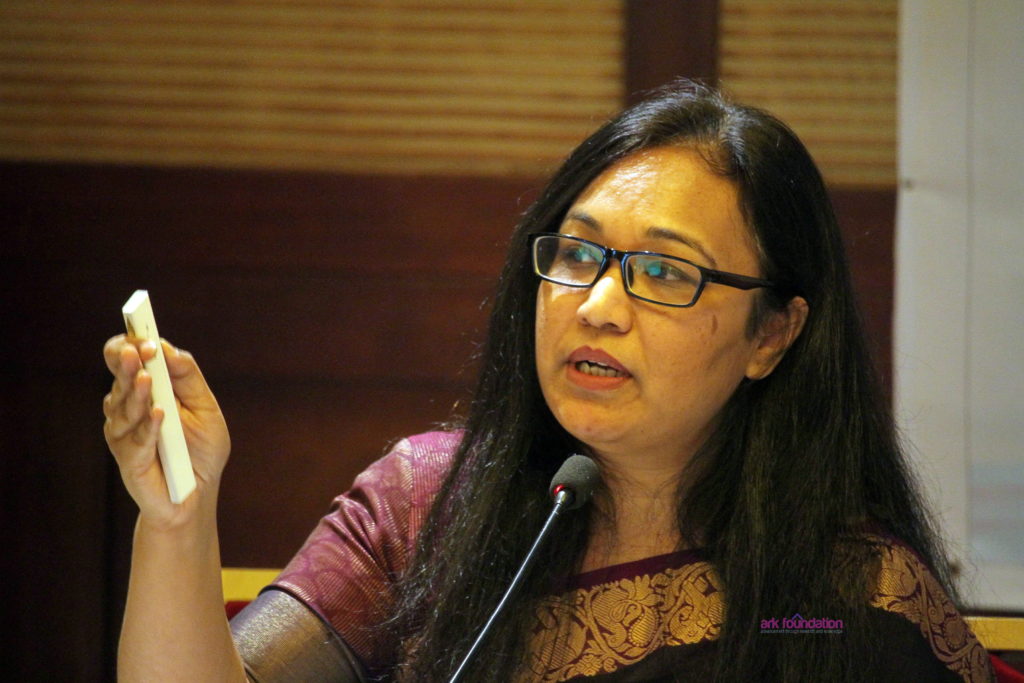 providers of 4 districts, to hone their skills in counselling patients for tobacco cessation. Later, 28% of the TB patients and 40% of males were identified as smokers. The trained healthcare workers were successful in providing counselling and supporting these patients to quit smoking. This proves that, for patients to quit tobacco, providing support through a brief counselling session, is effective and feasible on a large scale.
providers of 4 districts, to hone their skills in counselling patients for tobacco cessation. Later, 28% of the TB patients and 40% of males were identified as smokers. The trained healthcare workers were successful in providing counselling and supporting these patients to quit smoking. This proves that, for patients to quit tobacco, providing support through a brief counselling session, is effective and feasible on a large scale.
Through the provision of straightforward simple training to the healthcare providers, it is possible to support patients quit tobacco, and this will cost the government only 65 BDT per month.
In his speech, Chief Guest Md. Saidur Rahman mentioned, “Quitting tobacco use must be made mandatory for those who attended the DOTS centre for treatment. It is possible to help patients quit tobacco during their treatment period of six months. Today, from here, we should make a decision that we will begin a support programme to help TB patients stop smoking and quit tobacco.” He mentioned, “All TB patients should be free from tobacco use. This programme must be made compulsory in all hospitals providing treatment for TB”.
The Line Director of the National TB Control Programme, Dr Shamiul Islam stated, “The government has committed to making the country TB free by 2035 and tobacco-free by 2040. For this commitment to be fulfilled, integrating tobacco control within TB treatment, and incorporating information on tobacco use, and helping patients to quit tobacco, is extremely important. For this reason, it is necessary to enhance the skills of healthcare providers and maintain their professional safety.”
Prof. Dr Shah Monir stated, “For the treatment of TB patients who use tobacco, collecting information on their use of tobacco and quitting the same, coupled with counselling which is easy for them to understand, is very important.
The integration of this arrangement is not only possible for TB patients but in other sectors of health is as well.
As a consequence, this will not only help in the development of evidence-based policies and management to control the disease, but it’ll also help to improve the condition of the patients and reduce the death rates due to TB.
The seminar was also attended by Honourable Former Joint Secretary Md. Ruhul Kuddus, Dr Golam Mohiuddin Faruque from the Cancer Society, Dr Sohel Reza Chowdhury from the National Heart Foundation, Syedul Mahbubul Alam, Technical Advisor of The Union, and renowned clinician Dr M. S. Choudhury Lelin.
Few newspapers in the country reported abou this event which can be found as follows:

